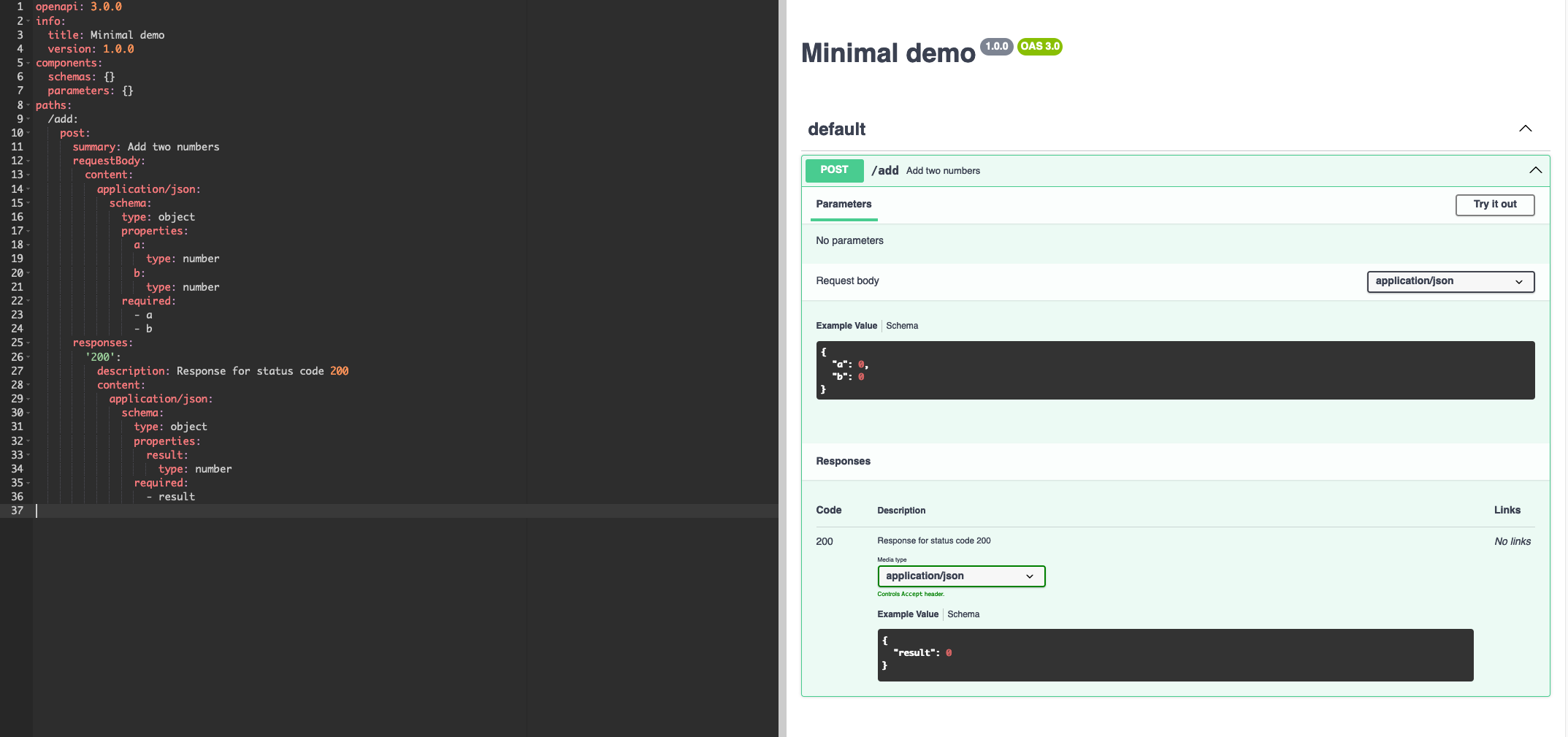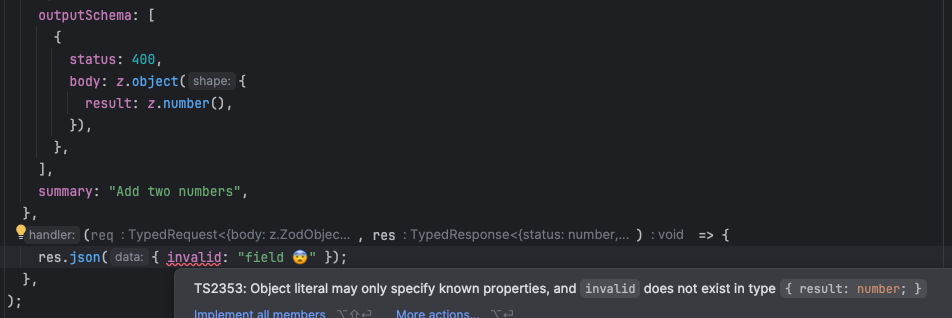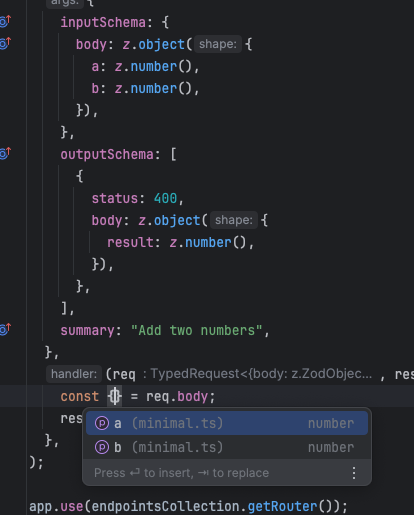This package provides easy to use helper for creating API endpoints in Express with TypeScript inference, validation and OpenAPI 3 schema out of the box.
No need to duplicate OpenAPI definitions in your codebase. Just define your API endpoints and automatically generate OpenAPI 3 schema.
You can configure exposed endpoints, request and response schemas, and validation rules.
- Fully typed endpoints (TypeScript hints and checks)
- Request body
- Response body
- Query parameters
- Path parameters
- Headers
- Automatic OpenAPI 3 schema generation
- Request and response validation using Zod
- Middleware support
- Minimal setup
npm install express-endpoints-collection
# or
yarn add express-endpoints-collection
# or
pnpm add express-endpoints-collectionimport express, { Express } from "express";
import bodyParser from "body-parser";
import { z } from "zod";
import { EndpointsCollection } from "express-endpoints-collection";
import { generateOpenAPI } from "express-endpoints-collection/generator";
// 1. Create express app
const app: Express = express();
app.use(bodyParser.json());
// 2. Create endpoints collection, this will store all your endpoints
const endpointsCollection = new EndpointsCollection();
// 3. Add new endpoint
endpointsCollection.post(
"/add",
{
inputSchema: {
body: z.object({
a: z.number(),
b: z.number(),
}),
},
outputSchema: [
{
status: 200,
body: z.object({
result: z.number(),
}),
},
],
summary: "Add two numbers",
},
// 4. req and res are fully typed!
(req, res) => {
const { a, b } = req.body;
res.json({ result: a + b });
},
);
// 5. Collection creates its own router, to use it just add it to your app
app.use(endpointsCollection.getRouter());
// 6. Expose OpenAPI 3 schema
app.get("/openapi", (req, res) => {
res.setHeader("Content-Type", "text/yaml");
res.send(
generateOpenAPI({
title: "Minimal demo",
version: "1.0.0",
endpoints: endpointsCollection.getEndpoints(),
servers: ["http://localhost:3000"],
}),
);
});
// 7. Start the server and done!
app.listen(3000, () => {
console.info(`Server is running on port http://localhost:3000`);
});it will generate OpenAPI 3 definition as follow:
openapi: 3.0.0
info:
title: Minimal demo
version: 1.0.0
components:
schemas: {}
parameters: {}
paths:
/add:
post:
summary: Add two numbers
requestBody:
content:
application/json:
schema:
type: object
properties:
a:
type: number
b:
type: number
required:
- a
- b
responses:
"200":
description: Response for status code 200
content:
application/json:
schema:
type: object
properties:
result:
type: number
required:
- resultor as JSON
{
"openapi": "3.0.0",
"info": {
"title": "Minimal demo",
"version": "1.0.0"
},
"components": {
"schemas": {},
"parameters": {}
},
"paths": {
"/add": {
"post": {
"summary": "Add two numbers",
"requestBody": {
"content": {
"application/json": {
"schema": {
"type": "object",
"properties": {
"a": {
"type": "number"
},
"b": {
"type": "number"
}
},
"required": ["a", "b"]
}
}
}
},
"responses": {
"200": {
"description": "Response for status code 200",
"content": {
"application/json": {
"schema": {
"type": "object",
"properties": {
"result": {
"type": "number"
}
},
"required": ["result"]
}
}
}
}
}
}
}
}
}Type inference and checks:
MIT



